We all know that dogs are carnivores. They love to eat meat. And we all know that Cavalier King Charles Spaniels love to eat at any opportunity. But is salmon good for Cavaliers?
Salmon is an excellent protein for Cavaliers, especially for those allergic to chicken. It’s high-quality protein, low in bad fats, and high in good fats, such as omega 3.
As always, we like to dive deeper into a topic to find all the details. For instance, is salmon good for dogs everyday? Is cooked salmon good for dogs? Can dogs eat salmon skin? So read on if you want to know more.
Nutritional Benefits of Salmon
Protein Source
Salmon is an excellent source of high-quality protein, crucial for building and maintaining muscle mass in our Cavvys.
This protein aids in developing a strong immune system, ensuring that our Cavaliers stay healthy and active throughout their lives.
A diet that includes salmon can help prevent health issues later in life and keep our dogs in their best shape, providing the high-quality protein necessary for optimal growth and development.
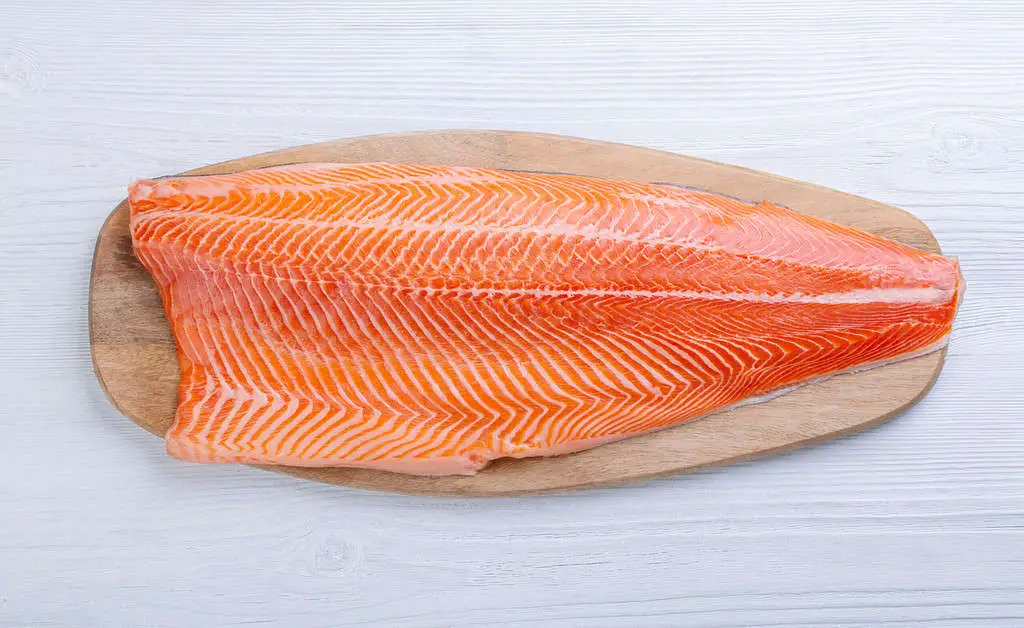
Omega-3 Fatty Acids
Salmon is rich in Omega-3 fatty acids. These essential fats support immune function, skin and coat health, and brain and eye development.
Incorporating salmon into your dog’s meal plan can improve their overall health and may even prevent potential health issues in the future.
Reducing Allergies
Cavaliers can be prone to food-related allergies. One advantage of feeding them salmon-based dog food is that it usually excludes common allergens like corn, wheat, and soy.
Such grain-free recipes can help alleviate the symptoms of allergies and provide a balanced diet for your pet.
We have spoken to a Cavalier parent on Instagram who stated that their Cavvy is allergic to chicken, so salmon is the perfect substitute for them.
Vitamins and Minerals
Salmon is rich in essential vitamins and minerals that promote the overall wellness of our dogs. Some of the key nutrients found in salmon include:
- Vitamin D – is crucial for bone health and immune system function
- Vitamin B – is important for energy production and cell metabolism
- Selenium – an essential antioxidant that helps protect cells from damage
- Phosphorus – an essential mineral for bone and teeth development
- Potassium – helps regulate fluid balance and nerve function
By incorporating salmon into our Cavaliers’ diets, we ensure they receive the necessary nutrients to support their overall health and well-being.
Potential Risks
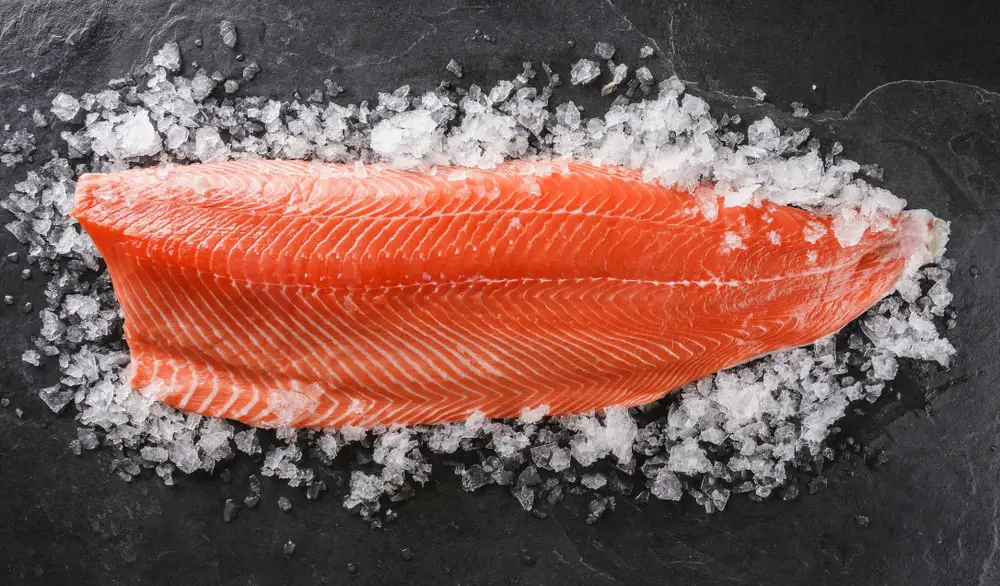
While salmon can be beneficial for dogs, certain risks need to be considered when including it in their diet; here are a few:
Allergies
Some dogs may have allergies or intolerances to fish, including salmon.
If your Cavalier has never had salmon before, it’s important to introduce it slowly and monitor for any signs of an allergic reaction, such as itching, vomiting, or diarrhea.
It may be best to consult a veterinarian before feeding them salmon if symptoms occur.
Mercury
Like many fish, salmon can contain trace amounts of mercury.
While the levels of mercury found in salmon are generally considered safe for dogs, feeding them too much over an extended period could potentially cause health issues.
To minimize this risk, providing your dog with a balanced diet and not relying solely on salmon as a protein source is important.
Raw Salmon and Parasites
Can dogs eat salmon raw?
The simple answer is no. Raw salmon may contain harmful parasites, which can cause salmon poisoning in dogs and be fatal if left untreated.
Symptoms include vomiting, diarrhea, fever, and lethargy. Always cook salmon thoroughly before feeding it to your Cavalier to avoid this risk.
Serving Recommendations
If your Cavvy has never eaten salmon, you should start with small portions.
Depending on your dog’s size and age, portions can vary. Begin by giving your dog a small, boneless piece of cooked salmon and thoroughly checking for any bones or scales.
Gradually, you can increase the portion size if your dog tolerates it well and enjoys the taste of salmon.
It is best to offer salmon as an occasional treat or a supplement to their regular diet rather than as a primary food source.
Preparation
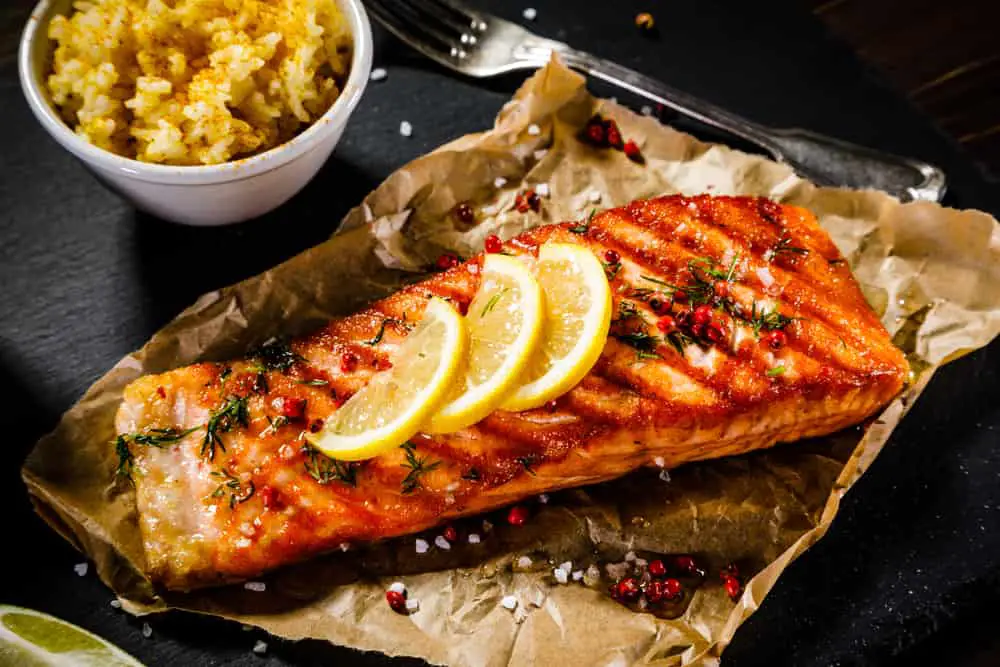
Baking, boiling, or steaming are suitable for preparing salmon for your dog. These cooking methods can help retain the natural nutritional value of salmon while ensuring it is safe for your dog to consume.
Never add seasonings, spices, or oils, as these can harm your dog’s health.
- Baking: Preheat the oven to 375°F (190°C). Place the salmon on a baking sheet lined with parchment paper, and bake for 15-20 minutes or until fully cooked.
- Boiling: Bring a pot of water to a boil and add the salmon. Lower the heat and let it simmer for 10-12 minutes or until thoroughly cooked.
- Steaming: Place the salmon in a steamer basket over boiling water and steam for about 10 minutes or until thoroughly cooked.
Once the salmon is cooked, allow it to cool completely and check for any bones, scales, or skin before serving it to your Cavalier.
It is not advised to leave the skin on for your Cavvy to eat, as it could be a potential choking hazard. Always remove the skin before serving bite-sized chunks.
Canned Salmon
Canned salmon can also be a convenient option for feeding your Cavalier.
When choosing canned salmon, ensure it is free of added salt, preservatives, or flavorings, and always select a can that preserves the salmon in water rather than oil.
Additionally, ensure the bones are removed or soft enough to be safely consumed by your pet. This may be a messy job, but it is vital for their health and well-being.
Advice and Recommendations
When considering whether salmon is good for your Cavalier King Charles Spaniel, it’s crucial to consult a veterinarian for advice and guidance.
They can provide recommendations based on your dog’s needs, including medical conditions or dietary restrictions.
Your vet will consider the dog’s age, weight, and activity level when making recommendations. They might also discuss potential risks of feeding your dog salmon, like allergies or intolerances.
It’s important to remember that each dog’s needs can vary, so a one-size-fits-all approach may not be suitable.
Remember, moderation is key when introducing new food to your dog’s diet. Too much of a good thing is always bad.
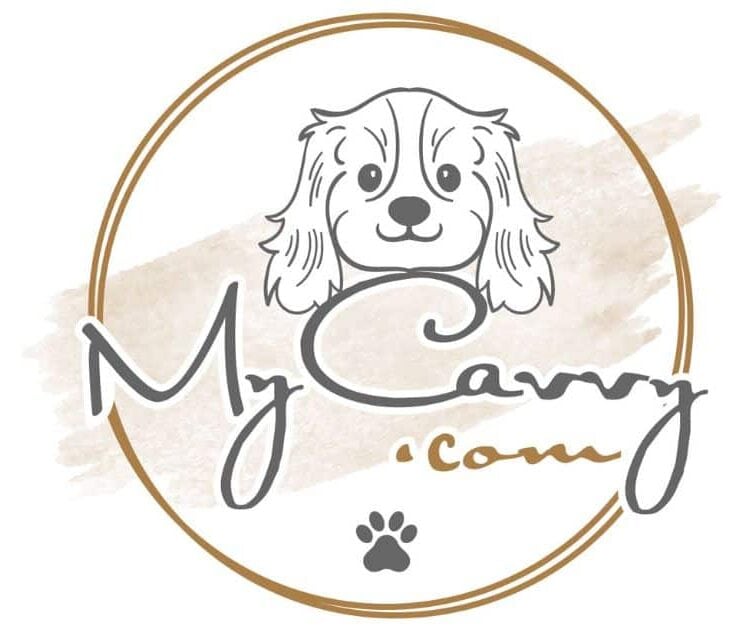
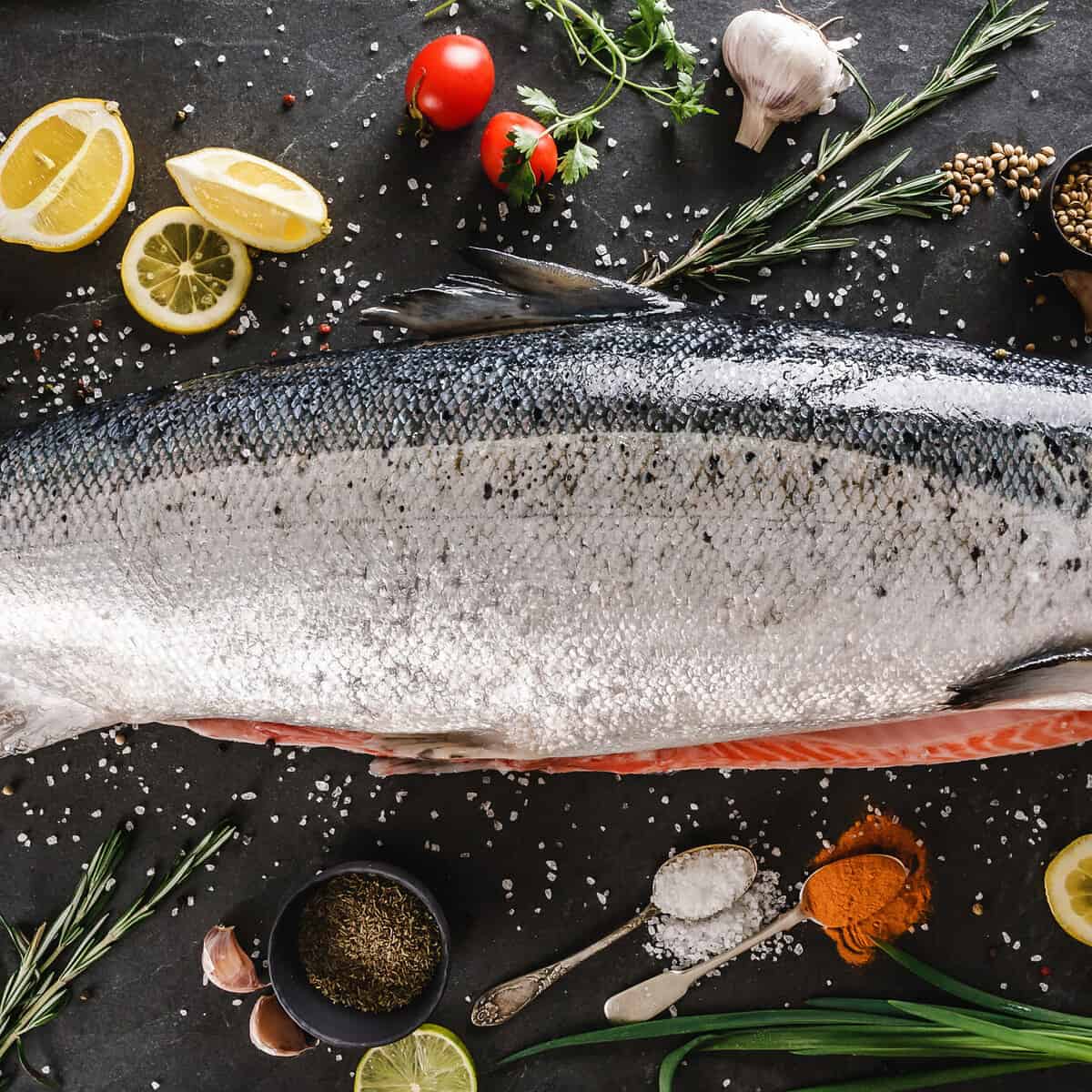
1 thought on “From Fins to Fur: Is Salmon Good for Cavaliers?”